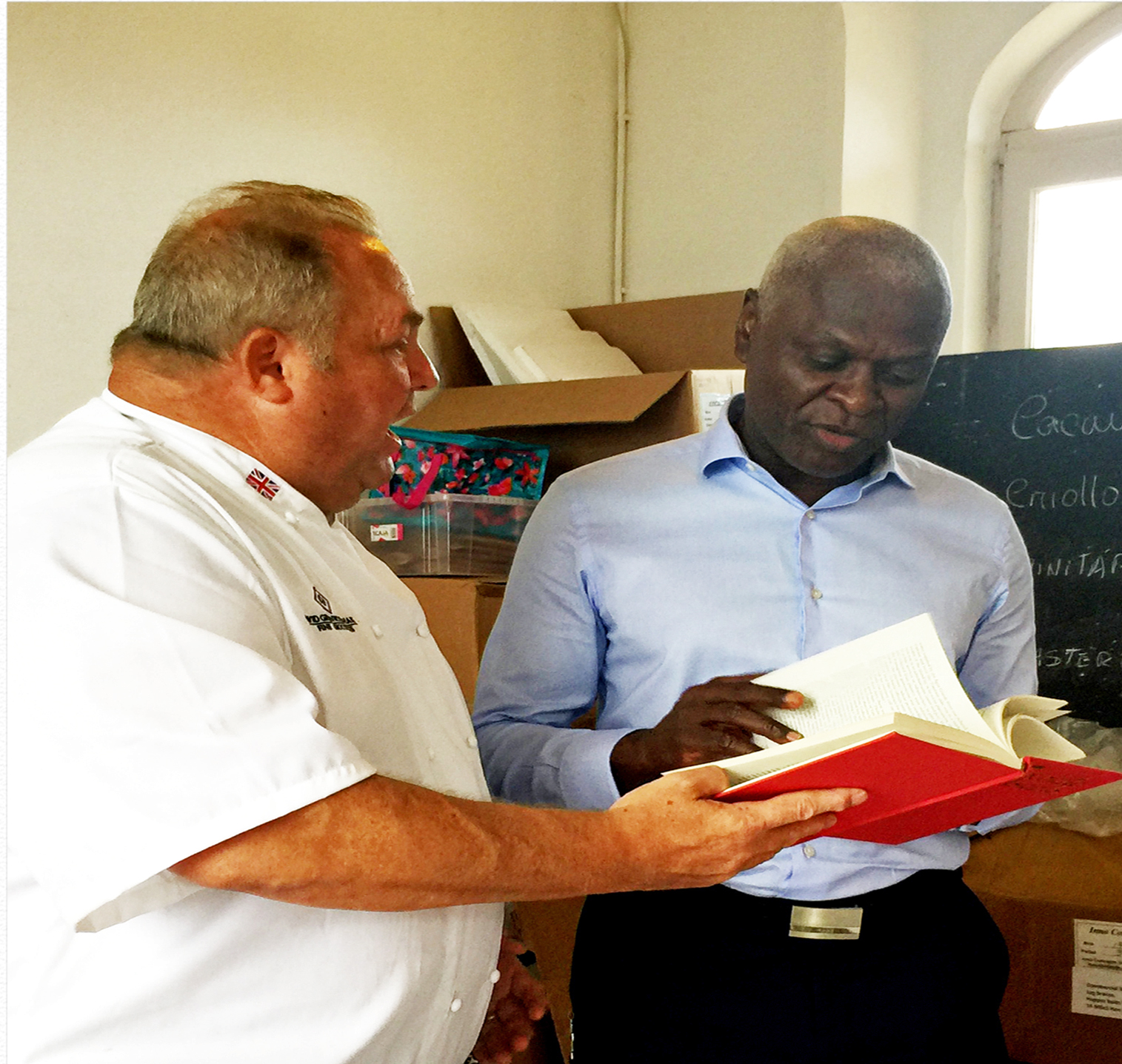Recently I was asked by a Portuguese hotel and hospitality company to lead a chocolate safari to the Chocolate Islands of São Tomé and Príncipe, and as a way of preparing for this event, I started researching and came across this amazing book, with maps, photographs, and charts all about the islands I was about to visit.
 I purchased both the hard copy and audio version to take with me, and I'm glad I did. I listened to the audio book on the flight, and when I was asked by the president of Principe where the best cocoa was grown on his island and I showed him in the book where he said it was, he also recognised a picture of his home, at which point I gifted the book to him.
I purchased both the hard copy and audio version to take with me, and I'm glad I did. I listened to the audio book on the flight, and when I was asked by the president of Principe where the best cocoa was grown on his island and I showed him in the book where he said it was, he also recognised a picture of his home, at which point I gifted the book to him.
The book is 'The Chocolate Islands: Cocoa, Slavery, and Colonial Africa', by Catherine Higgs, and I learned a lot from it.
It tells the story of a major colonial scandal that broke out in the years just before the First World War: accusations flew all around the world that African slaves were still cultivating cocoa in the tiny Portuguese colonies of São Tomé and Príncipe Islands, in the Gulf of Guinea,
Joseph Burtt was sent out as special envoy by William Cadbury, the Quaker chocolate magnate and ardent abolitionist (Cadbury Brothers Limited, Bournville), to investigate if the cocoa they were buying from the islands had been indeed been harvested by slave labourers who had been forcibly recruited from Angola.
Burtt spent six months on São Tomé and Príncipe, and a year in Angola, eight months in Porto Portugal learning Portuguese, plus time in Mozambique and South Africa. His long and well-funded tour lasted from 1904 to 1907.
The informative, well written, and engaging narrative draws on statistics and records from Burtt's letters in Birmingham libraries, Portugal, and Africa, shining a light on and exposing both British and Portuguese slow-to-change attitudes toward slavery, labourers, race, and imperialism.
Chocolate Islands reveals the idealism, naivety, and racism that shaped attitudes toward Africa at that time, even among those who sought to improve the conditions of its workers.
Burtt’s final report resulted in a UK boycott of all “Portuguese” cocoa, which led to them switching all their requirements over to British-controlled Ghanaian cocoa, elevating this country to the second largest producer in the world.
If you would like to read more about the islands click here
